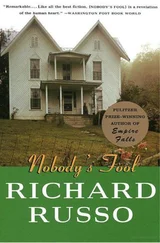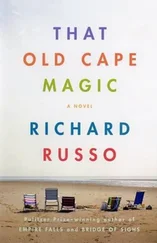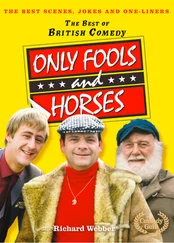Why, then, Rub had wondered many times since, had he grieved his father’s passing? Because that’s what boys were supposed to do when their fathers died? Because his mother, who had every reason to be happy that the man was gone, had sobbed so pitifully? How could she possibly miss a man who’d belittled her as naturally as he’d breathed? By the same token, how could Rub himself? One of his clearest memories was of one Sunday morning when his mother had gone off to church, leaving the two of them alone in the house. He could still see the old man sitting in the corduroy armchair that no one else could sit in and watching, with an expression of sneering wonderment, as Rub tried desperately to communicate something of importance, he no longer could remember exactly what. His stammer was always at its worst around his father, words turning to concrete shards in his mouth. Part of the reason he continued to struggle, he now recalled, was that he’d actually managed to get out part of what he wanted to say and mistook his father’s curious expression to indicate interest. But then he saw it wasn’t curiosity at all, simply disgust. “Why don’t you just give up?” was what his father wanted him to explain.
“How dare you?” said a voice he didn’t recognize. Neither Rub nor his father had heard his mother return. She’d just materialized there in the doorway, and her fury was so focused that she not only sounded but also looked like another woman entirely. He’d never known her to raise her voice to his father before, but here she was, glaring at him, shaking with rage, and in her hand a gleaming kitchen knife. At that moment his mother, who could often calm his stammer by simply resting a cool, dry hand on top of his, looked perfectly willing to kill the man whose verbal abuse she took, day after day, as if it were her due.
“You,” she went on, the usual quaver in her voice now absent as she pointed the tip of the blade at his father. “ You’re the reason he’s like he is.”
Rub’s father, his mouth open, as if on a hinge, seemed less frightened by this knife-wielding specter than dumbstruck by her words. If so, he was no less stunned than Rub himself, who tried desperately to make sense of what she was saying. He knew all too well that his stammer was worse in his father’s presence, but how could he be to blame for the affliction itself? If Rub’s mouth didn’t work properly, if he couldn’t make it behave, how could it be anyone’s fault but his? Hadn’t his mother always told him it was nobody’s fault? Hadn’t the lady at the university she’d taken him to see — a speech therapist, she was called — concurred? Rub had wondered if they were just trying to make him feel better and, if so, fine. He didn’t object to being let off the hook. But this was different. Had his mother lost her mind? How could his stupid mouth be his father’s fault?
“You’re a hateful, hateful man,” she continued as Rub looked on in horror. “Your only joy is tormenting the people who love you.”
His father started to say something, but no sound came out of his mouth, which was just as well because Rub’s mother wasn’t finished. She pointed the sharp end of the knife at Rub now.
“That boy actually looks up to you, you hateful man. He doesn’t know there’s no such thing as pleasing you. He doesn’t understand that you enjoy watching him suffer. And you know what? Neither do I. So explain it to us. How can it feel good that this boy, your child, is so terrified every waking moment that he wets the bed at night?”
When Rub heard this, he could only stare at the floor in shame. He had no idea his father knew about the bed. His mother had told him it would be their secret, but clearly she hadn’t kept her promise. You’re the reason he’s like he is, she’d said earlier, and what she must’ve meant by that now crystallized. She wasn’t just talking about his stammer but rather about everything that was wrong with him, his totality as a disappointing boy.
He also understood something else. His mother’s rage, her willingness not just to defend him but to shift the blame for his failures to his father, were in direct response to his father’s question: Why don’t you just give up? At first he’d assumed he was advising him to pause, calm down, collect himself and begin again from a more tranquil state. After all, that was what his mother and the speech therapist always encouraged him to do. Now, though, thanks to his mother’s fury, he understood that what his father had actually wanted to know was why, given the entirety of his experience, Rub didn’t give up altogether and stop believing in the possibility of good outcomes.
So again, why grieve the loss of such a man?
You tell me.
But Rub couldn’t, any more than he could explain why now, so many years later, he wasted so much time indulging silly, impossible fantasies. Because Sully was right. You couldn’t turn back the clock. Which meant he and Sully would never again be best friends. “Will we?” he said.
But again Sully was silent.
Maybe, Rub thought, there were some things in this world you just needed, against all reason. Maybe his need for Sully wasn’t so very different from his mother’s need for his father, a man who never tired of disparaging her. Because she had needed him, of that Rub was certain. Not long after his father’s death, she stopped going to church and, without warning or explanation, Calendar Jesus disappeared from the kitchen wall, as if with only the two of them in the house they had no further need to mark the passing of days and months. By the time Rub was in middle school, she’d begun to wander off, and people would bring her home dazed and disoriented. Worse, she began to regard Rub, whom she’d been willing to defend with that gleaming knife, as if she couldn’t quite place him. It was the same look Sully sometimes gave him lately. Would what happened to her also happen to Sully? Was his new forgetfulness, his inability to sit still, an omen of what waited ahead? Would Sully, like Rub’s mother, become so abstracted that he’d start wandering off? If so, who would bring him home? Who would remind him who his friends were if he forgot? Would Rub himself be among them?
Hey, Dummy.
“What?”
Quit that.
It was true, Rub had begun to blubber, which Sully always hated. He’d made the mistake of looking over at the funeral gathering at exactly the wrong moment. The man in the flowing robe had made a sweeping gesture toward the gleaming casket, and in that instant the sun had reflected off its surface to blinding effect, and suddenly Rub knew for a certainty what had perplexed him only a moment before. His mother had still been relatively young when she began to lose her mind. Sully was old. He wasn’t going to wander off. He was going to die. And the worst part was that when the day came it would fall to Rub to dig his best friend’s grave.
You hear me? Quit.
“I can’t help it,” Rub blubbered.
Listen to me.
“What?”
Are you listening?
Rub nodded.
I’m not going anywhere for a while yet, okay?
“Promise?”
How about if I stick around until you’re squared away? How would that suit you?
Rub nodded. That suited him fine. Because this much he was certain of, just as his mother had been — he was never going to be squared away.
Not ever.
A BANNER WAS STRUNG across Main Street for the Memorial Day weekend. THE NEW NORTH BATH: PARTNERING FOR TOMORROW. This was the brainstorm of Gus Moynihan, the town’s new mayor, who’d been swept into power the previous year on a tidal wave of born-again optimism, more than a decade after the demise of the Ultimate Escape Fun Park, an economic catastrophe that had ushered in a golden age of self-loathing and fiscal pessimism deeply rooted in two centuries’ worth of invidious comparison with Schuyler Springs, its better-looking twin and age-old rival. Schuyler had long possessed everything to which Bath aspired — a vibrant local economy, an educated citizenry, visionary leadership, throngs of seasonal downstate visitors, an NPR affiliate radio station.
Читать дальше












